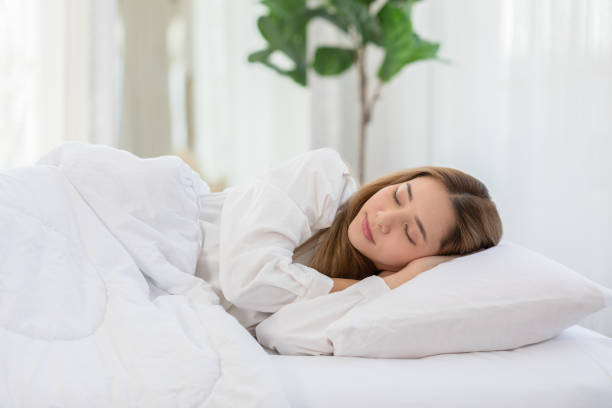Sleep is one of the most fundamental aspects of human health, yet it is also one of the most misunderstood. In today’s fast-paced, technology-driven world, many of us struggle to get the restful sleep our bodies and minds desperately need. We stay up late scrolling on our phones, we juggle stressful responsibilities, and we consume stimulants that sabotage our natural rhythms. The result? Millions of people around the globe are experiencing poor sleep quality—leading to fatigue, poor focus, weakened immunity, and even long-term risks like heart disease and diabetes.
But here’s the good news: sleep is not a mystery we cannot solve. Modern science has uncovered powerful, evidence-based strategies to help us sleep better, longer, and more deeply. By understanding how our bodies work—especially our circadian rhythms, hormones, and brain activity—we can make simple, practical changes that transform our nights into restorative experiences.
Below, we’ll explore 15 science-backed ways to improve sleep quality. Each method is grounded in research and can be adapted to your daily life.
1. Stick to a Consistent Sleep Schedule
One of the most powerful tools for better sleep is consistency. Your body has an internal clock, known as the circadian rhythm, which regulates when you feel sleepy and when you feel alert. This rhythm is strongly influenced by your sleep and wake times.
Studies show that going to bed and waking up at the same time every day—even on weekends—can dramatically improve sleep quality. Inconsistent schedules, on the other hand, confuse your body, making it harder to fall asleep and wake up refreshed.
By sticking to a regular schedule, you help synchronize your circadian rhythm with the natural day-night cycle, making sleep come more easily and naturally.
2. Create a Relaxing Pre-Sleep Routine
Your body cannot switch from “high stress, high alert” mode to deep sleep in an instant. Instead, it needs a gentle wind-down period. Science shows that having a bedtime routine signals to your brain that it’s time to relax and prepare for sleep.
This routine could include dimming the lights, taking a warm shower, reading a book, journaling, or practicing light stretches. Engaging in calming activities lowers cortisol (the stress hormone) and promotes melatonin production, the hormone that makes you sleepy.
Over time, your brain begins to associate these habits with sleep, making it easier to transition into restful slumber.
3. Limit Screen Time Before Bed
Blue light from phones, tablets, and computers has been shown to suppress melatonin production, making it harder to fall asleep. Since melatonin is essential for regulating sleep-wake cycles, late-night scrolling can trick your brain into thinking it’s still daytime.
Research suggests avoiding screens at least one hour before bed. If that’s not possible, using blue light filters or “night shift” modes can reduce the impact. Even better, swap your phone for a calming activity like reading a physical book, listening to soothing music, or meditating.
4. Optimize Your Sleep Environment
Your bedroom environment has a direct impact on your sleep quality. Science has identified several key factors:
- Temperature: The ideal sleep temperature is between 60–67°F (15–19°C). Cooler environments help lower core body temperature, which is necessary for sleep onset.
- Noise: Excess noise can disrupt sleep cycles. Use earplugs, white noise machines, or calming background sounds to block disturbances.
- Light: Darkness signals melatonin production. Use blackout curtains, sleep masks, or dim lights to create a cave-like environment.
- Comfort: Invest in a good mattress and pillows suited to your sleeping position. Studies show that mattress quality directly influences sleep depth and spinal alignment.
By tailoring your environment, you can transform your bedroom into a true sleep sanctuary.
5. Be Mindful of Caffeine and Alcohol
Caffeine is a powerful stimulant that blocks adenosine, the chemical that builds up in your brain and makes you feel sleepy. Its effects can last for up to 6–8 hours, which means that your afternoon coffee could be sabotaging your bedtime.
Similarly, while alcohol may make you feel drowsy at first, it disrupts REM sleep, the stage critical for memory, mood regulation, and overall restoration.
Science recommends avoiding caffeine at least 6 hours before bedtime and limiting alcohol in the evening if you want truly restorative sleep.
6. Get Exposure to Natural Light During the Day
Light is the most powerful regulator of your circadian rhythm. Morning sunlight helps signal to your brain that it’s time to wake up, boosting alertness and energy. This natural light exposure also strengthens your body’s internal clock, making it easier to fall asleep at night.
Studies show that people who get more daylight exposure tend to fall asleep faster and enjoy deeper, higher-quality sleep. If you can’t get outside in the morning, even a short walk in natural light or sitting near a bright window can make a difference.
7. Exercise Regularly (But Not Too Late)
Physical activity has been consistently shown to improve sleep quality. Exercise reduces stress, helps regulate circadian rhythms, and increases slow-wave sleep, which is the deepest and most restorative stage.
However, the timing matters. Vigorous exercise too close to bedtime can raise your heart rate and body temperature, making it harder to fall asleep. Ideally, aim for workouts earlier in the day or at least three hours before bedtime.
Even light activities like walking, yoga, or stretching can support better sleep when done regularly.
8. Watch What and When You Eat
Food has a significant impact on sleep. Eating heavy, rich meals late at night can cause indigestion and discomfort, making it harder to sleep. Likewise, spicy or fatty foods can increase nighttime awakenings.
Research suggests that it’s best to eat your last meal 2–3 hours before bed. On the flip side, certain foods may promote better sleep: bananas, almonds, kiwi, and warm milk all contain compounds that support melatonin production or relaxation.
Paying attention to your evening eating habits can make a surprising difference in how well you rest.
9. Manage Stress and Anxiety
Stress is one of the most common causes of poor sleep. Racing thoughts, worries, and anxiety activate the sympathetic nervous system, keeping the body in “fight or flight” mode instead of allowing it to relax.
Science-backed methods for calming the mind include:
- Mindfulness meditation: Proven to reduce insomnia and improve sleep quality.
- Deep breathing exercises: Slow, controlled breathing lowers heart rate and promotes relaxation.
- Journaling: Writing down worries or gratitude lists before bed clears mental clutter.
By managing stress effectively, you prepare your mind to enter a state of calm that supports deep, restorative sleep.
10. Limit Naps During the Day
Daytime naps can be refreshing, but they can also interfere with nighttime sleep if not managed wisely. Research shows that long or late naps reduce sleep pressure, making it harder to fall asleep at night.
If you do nap, aim for 20–30 minutes in the early afternoon. This provides a boost in alertness without disrupting your nighttime rest.
Strategic napping can be a useful tool, but balance is key.
11. Keep Your Bedroom Only for Sleep and Relaxation
Your brain builds associations with spaces. If you regularly use your bed for work, eating, or scrolling on your phone, your brain no longer connects the bed solely with sleep. This weakens your ability to fall asleep quickly when you lie down.
Sleep experts recommend following the stimulus control method: reserve your bed only for sleep and intimacy. If you can’t fall asleep within 20 minutes, get up, do something calming, and return when you feel drowsy. This helps retrain your brain to see the bed as a signal for sleep.
12. Regulate Your Evening Lighting
The type of light you’re exposed to in the evening plays a significant role in sleep. Bright, cool-toned light suppresses melatonin, while warm, dim lighting helps signal bedtime.
Science suggests switching to warm-colored lights (like amber or red) in the evening. Using lamps instead of overhead lights and dimming them gradually as bedtime approaches can mimic the natural sunset and prepare your body for rest.
13. Consider Sleep-Boosting Supplements (With Caution)
Certain natural supplements have been shown to support sleep quality:
- Melatonin: Useful for regulating circadian rhythms, especially for jet lag or shift workers.
- Magnesium: Helps relax muscles and calm the nervous system.
- Valerian root: Linked to improved sleep onset and relaxation.
- Chamomile: Contains antioxidants that promote relaxation.
While these supplements can be effective, they should be used with caution and ideally under professional guidance, since they may not be suitable for everyone.
14. Keep a Sleep Diary
Tracking your sleep patterns can reveal hidden habits that are sabotaging your rest. A sleep diary typically records bedtime, wake time, number of awakenings, caffeine intake, screen use, and exercise.
Over time, patterns emerge that help you pinpoint what helps and what hurts your sleep. Many sleep clinics use diaries as a first step in diagnosing insomnia or other sleep disorders.
Awareness is powerful: once you know what affects your sleep, you can make targeted changes.
15. Seek Professional Help When Needed
Finally, if poor sleep persists despite healthy habits, it may be time to seek professional help. Sleep disorders such as insomnia, sleep apnea, restless leg syndrome, and narcolepsy can dramatically impact health and require medical treatment.
A sleep specialist can perform tests like polysomnography to identify underlying issues. In many cases, treatments such as cognitive-behavioral therapy for insomnia (CBT-I) are highly effective and backed by decades of research.
Good sleep is not a luxury—it is a necessity. If your struggles go beyond lifestyle tweaks, seeking help can transform your nights and restore your well-being.
Conclusion
Sleep is the foundation of physical, emotional, and mental health. It fuels our creativity, sharpens our focus, strengthens our immune system, and restores our energy. Yet too often, it is neglected in the rush of modern life.
By applying these 15 science-backed strategies—from sticking to a sleep schedule and creating a bedtime routine to managing stress and optimizing your environment—you can unlock the full potential of restful, rejuvenating sleep.
Improving sleep is not about perfection but about progress. Even small changes can lead to big improvements over time. And as you embrace these habits, you’ll discover that sleep is not just about closing your eyes—it’s about opening the door to a healthier, more vibrant life.






